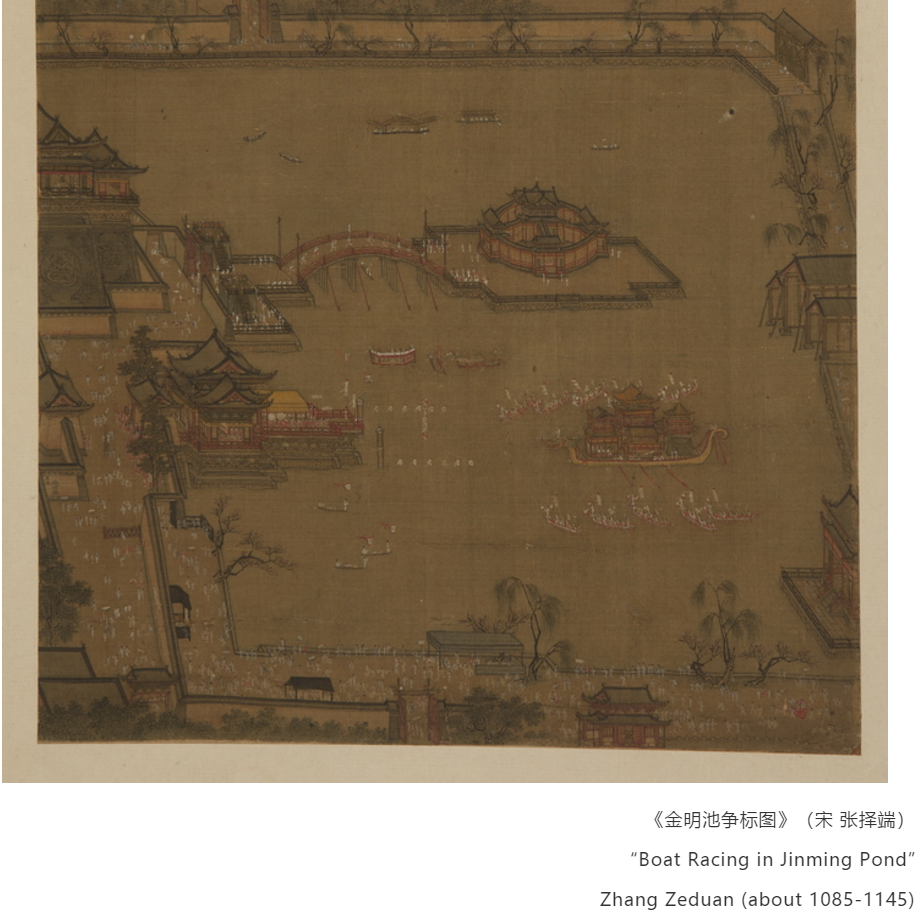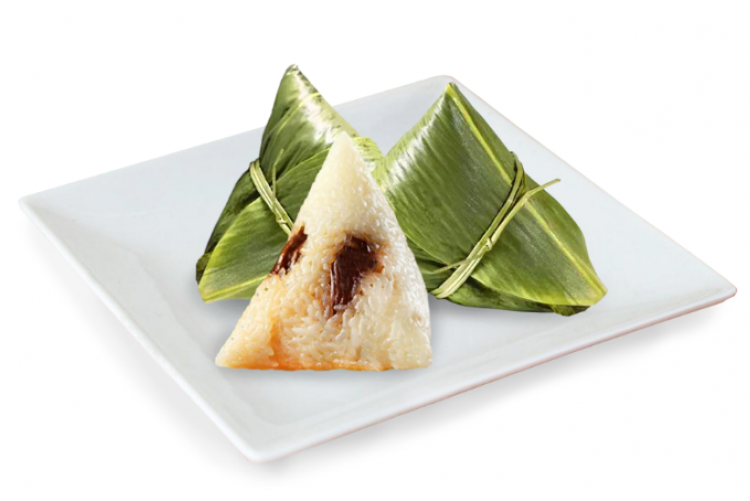转自 孔子学院公众号
From Confucius Institute Official Account
端午节也叫端阳节、龙舟节,是中国四大传统节日之一。端午节在每年农历五月初五,最初是驱瘟避恶的节日,后来又被赋予了纪念历史人物的意义,演变到今天已融合了多重内涵。端午节的主要习俗有赛龙舟、吃粽子、挂艾草等。
The Dragon Boat Festival, also known as Duanwu Festival, Duanyang Festival or Longzhou Festival, is one of the four most important traditional festivals in China. Observed on the fifth day of the fifth month on the lunar calendar every year, it was originally intended to expel evil and later used to commemorate historical figures. By now, it has taken on myriad connotations. The main customs observed on the day of the festival include holding dragon boat races, eating Zongzi (glutinous rice dumplings), and hanging wormwood bunches, among others.
端午安康
May You Enjoy Good Health
on the Dragon Boat Festival
在古代中国,农历五月被认为是“恶月”。这时候天气湿热、多病毒疫疾,蚊蝇毒虫也都出来活动,人易生病。于是,人们会在端午节期间悬挂艾草、饮雄黄酒、采药制药、系五彩缕,以达到驱瘟避恶、祈求平安的目的。端午节的祝福语多为“端午安康”。
In ancient China, the fifth month of the lunar calendar was considered “the month of evil”, since the hot and humid weather, frequent epidemics, and swarming mosquitoes, flies, and venomous creatures made people more vulnerable to diseases. Therefore, during the Dragon Boat Festival, the Chinese would habitually hang wormwood bunches, drink realgar wine, collect herbs, and wear colorful strands of silk in order to drive away evil and pray for peace. On the occasion, “May you enjoy good health on the Dragon Boat Festival” is often said in greeting to convey blessings.
屈原
Qu Yuan
中国的端午节有纪念多位历史人物的传统,最广为人知的是屈原,此外还有伍子胥、介子推、曹娥等。屈原,战国时期楚国诗人和政治家,爱国忧民、清高自守,相传于五月初五投汨罗江以身殉国,后被世人纪念追思并一直延续至今。
The Dragon Boat Festival has also traditionally been used to commemorate historical figures, including Wu Zixu, Jie Zitui and Cao E, but among which Qu Yuan is the most well-known. Qu Yuan, a patriotic poet and politician from the State of Chu who lived during the Warring States Period (475 BC-221 BC), cared for his motherland and the people. He refused to swim with the evil tide and allegedly drowned himself in the Miluo River on the fifth day of the fifth month on the lunar calendar in defense of his loyalty to his motherland. He was hence commemorated by subsequent generations, even to this day.
亦余心之所向兮,虽九死其尤未悔。
——《离骚》
(战国时期 屈原)
For what I have been aspiring,
I would gladly lay down my life.
——“Li Sao”
Qu Yuan (About 340 BC–278 BC)
赛龙舟
Dragon Boat Racing
赛龙舟是一种赛艇运动。古代中国人将船当作送走灾邪的工具,慢慢衍生出端午赛龙舟的习俗,后又融合了“争相竞渡、抢救屈原”的意义。现在的赛龙舟已经发展成为一项正式的水上竞技运动,重要的赛事有世界龙舟锦标赛、中华龙舟大赛、香港国际龙舟邀请赛等。
Dragon boat racing is a sort of rowing sport. Since boats were considered a vessel for sending away evil spirits in ancient China, they gradually gave rise to the custom of dragon boat races for the festival, which later took on the connotation of racing against each other in an effort to rescue Qu Yuan. Nowadays, dragon boat racing has become an official water sport, incorporating such important events as the International Dragon Boat Championships, the Chinese Dragon Boat Race, and the Hong Kong International Dragon Boat Invitational Race.

吃粽子
Eating Zongzi
端午节的代表食物非“粽子”莫属。粽子多由竹叶或苇叶包裹糯米蒸煮而成,它的形状、馅料因各地饮食习惯和口味的差别而有所不同。作为节日食品,粽子同样有着祭祀水神、祭龙、纪念屈原等多重含义。
The most representative food of the Dragon Boat Festival is none other than “Zongzi.” Mostly made by steaming glutinous rice wrapped in bamboo or reed leaves, it has a rich array of shapes and fillings, depending on the diet and taste of different regions. As a festive food, it also carries multiple meanings, such as offering sacrifices to the water god and to the dragon, and commemorating Qu Yuan.

Dragon Boat Festival in Chinese Poetry
彩线轻缠红玉臂,
小符斜挂绿云鬟。
——《浣溪沙·端午》
(宋 苏轼)
The colorful threads are gently wrapped around the delicate arms, while the small mascot slants on the black hair bun.
—“Sand of Silk-washing Stream
Dragon Boat Festival”
Su Shi (1037-1101)
画鼓喧雷,红旗闪电,
夺罢锦标方彻。
——《喜迁莺》
(宋 黄裳)
The painted drums thundered away amid fluttering red banners, until the contention for the championship ceases.
—“The Joy of Seeing Migrating Orioles”
Huang Chang (1044-1130)
Dragon Boat Festival in Chinese Poetry


《午瑞图》(清 郎世宁)
“Auspicious Signs of the Dragon Boat Festival”
Lang Shining (1688-1766)

端午节这天,或是挂艾草菖蒲,或是系五彩丝绳,或是观龙舟竞渡,或是读屈原离骚,或是食粽解乡愁,或是团圆度佳节……正是这满满的仪式感,让中国节日焕发光彩,让文化传统得以传承。五月初五,端午安康!你吃粽子了吗?
On Dragon Boat Festival, the people hang wormwood bunches, tie colorful silk strands to themselves, watch the dragon boat race, read Qu Yuan’s Li Sao (The Lament), eat Zongzi to relieve homesickness, or get together for the festival... It is these rituals that make the festival meaningful and preserve the cultural traditions handed down by generations. It’s another Duanwu Festival. May you enjoy good health! And, how did you like yourZongzi?
- Log in to post comments

